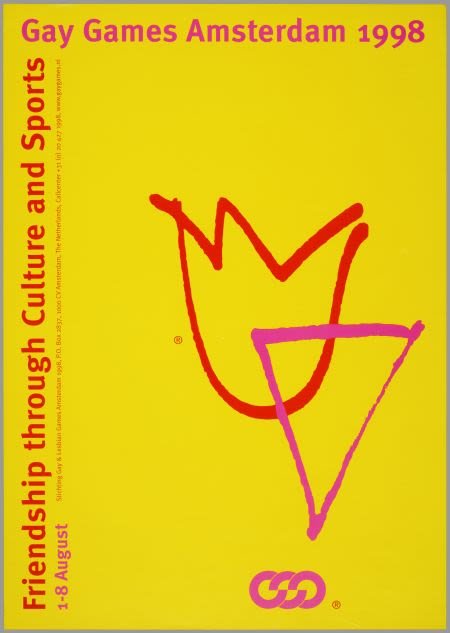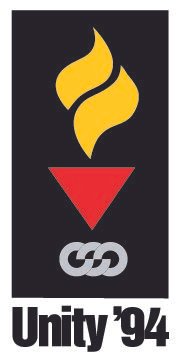
Previous Editions
Our history
The Gay Games, a pioneering event at the intersection of sports, culture, and LGBTQ+ activism, traces its roots to the vision of Dr. Tom Waddell, an accomplished Olympic decathlete.
Launched in 1982, the inaugural Gay Games unfolded in San Francisco. Waddell's motivation was clear: to create an inclusive space where LGBTQ+ athletes could participate without the specter of discrimination, fostering a sense of community and breaking down societal barriers. The event attracted over 1,300 participants from 12 countries, taking part in various sports and cultural events, and the Opening Ceremony notably featured a performance by Tina Turner.
Gay Games II was held in 1986, again in San Francisco, with a number of new events added. Total participation exceeded 3,500 artists and athletes.
The third edition of our event, Gay Games III took place in Canada in 1990, where the stunning natural landscapes of Vancouver provided a picturesque setting for the Games. There were 7,300 athletes and 1,500 artists participating in 27 sports and more than a dozen cultural events. For the first time, several sanctioned world records were set in the swimming event.
In 1994, Gay Games IV was held in New York City, who’s opening ceremony included a stirring speech by Olympic diving legend Greg Louganis, who would go on to become a prominent LGBTQ+ advocate. Additional world records were set in the swimming events, further marking the Gay Games as a legitimate sporting event.
Gay Games V was held in Amsterdam in 1998 which brought together a record number of 14,000+ participants from 73 countries and the highest percentage of women participants to date. A major controversy took place over the presence of same-sex figure-skating pairs which ultimately led to rules changes among the international sanctioning bodies.
Next came Gay Games VI held in Sydney in 2002, the first time in the Southern Hemisphere. The stirring Opening Ceremony featured performances from k.d. lang and a speech by out gay High Court of Australia Justice Michael Kirby. The Games were officially opened by New South Wales Governor Professor Marie Bashir.
In 2006 Chicago took centre-stage at Gay Games VII, where 70 countries participated, with 11,500 athletes and hundreds of artists taking part in 30 sports and more than 15 cultural events. The opening and closing ceremonies took place at iconic pro sports stadiums: Soldier Field and Wrigley Field, respectively. Many significant cultural performances took place at the lakefront Grant Park and the new Pritzker Pavilion in Millennium Park
2010’s Gay Games VIII, held in Cologne, featured a “Cultural Village '' that was introduced as a hub for artistic expressions, featuring exhibitions, performances, and discussions, further reinforcing the belief that LGBTQ+ inclusivity extends beyond sports. Notably, Olympic gold-medal winning out gay diver Matthew Mitcham was a visible presence, participating in the International Rainbow Memorial Run and meeting swimmers at the pool.
Gay Games IX were held in Cleveland + Akron in 2014, where a number of prominent LGBTQ+ athletes and celebrities appeared. A highlight of the Opening Ceremony was a video welcome by US President Barack Obama.
Our tenth edition, Gay Games X in 2018, hosted in Paris, France, featured an incredible marathon finish line, which was set against the iconic backdrop of the Eiffel Tower.
And finally our most recent event, Gay Games XI in the series, was hosted in not one but two separate continents - for the first time in Asia in Hong Kong, and the first time in Latin America in Guadalajara, Mexico, in 2023.
The Games have seen remarkable moments that transcend the confines of athletic prowess. From the visionary ideals of Dr. Tom Waddell in 1982 to the diverse, global celebrations of the last 41 years, the Games have significantly impacted the landscape of LGBTQ+ representation in sports and culture, transcending artistic and athletic achievement to become a cultural force driving positive change.
Our next Games will be our twelfth, Gay Games XII, and will be hosted in the Spanish city of València in 2026. We are looking forward to seeing the contribution that València gives to this enduring story of progress, resilience, and inclusivity.
Gay Games XII
València, Spain
June 2026
Gay Games XI
Hong Kong & Guadalajara, Mexico
3 to 11 November 2023
The Gay Games visited Asia and Latin America for the first time in 2023, splitting the event between two sites in Hong Kong and Guadalajara, Mexico.
55 sports and cultural events
102 nations
10,318 participants
Gay Games X
Paris, France
4 to 12 August 2018
A global "celebration of diversity" took place in Paris in August 2018. This week-long festival for the 10th edition of the Gay Games included 36+ sports, 14 cultural events, and an academic conference. The Village at City Hall Plaza was a highly visible gathering place throughout the week and the site of the Closing Ceremony. A total of 10,317 registered participants from 91 countries took part in Gay Games X.
50 sports and cultural events
91 nations
10,317 participants
Gay Games IX
Cleveland + Akron, Ohio USA
9 to 16 August 2014
The 2014 Gay Games presented by the Cleveland Foundation brought the event to Northeast Ohio. 37 sports and culture events across the region. The event featured the first live streaming of many events and helped lead to a $147,000 lasting financial legacy in both Cleveland and Akron.
37 sports and cultural events
50 nations
8,000 participants
Gay Games VIII
Cologne, Germany
31 July to 7 August 2010
With a gay sports history dating to 1979, Cologne’s tradition of openness, combined with two great villages and a concentration of sports at the German Sports University translated into a highly memorable week for 9,500 participants from 70 countries.
35 sports and cultural events
70 nations
9,500 participants
Gay Games VII
Chicago, USA
15 to 22 July 2006
With extensive civic and business support, Chicago organizers achieved record sponsorship levels that ensured a fun, well-organized week for the 11,700 participants from 70 countries and thousands of spectators. Gay Games VII again showed the enduring impact of the Gay Games.
30 sports and cultural events
70 nations
11,700 participants
Gay Games VI
Sydney, Australia
2 to 9 November 2002
Visiting the Southern Hemisphere, more than 11,000 athletes and cultural participants converged “Under New Skies” from 70 countries. The Sydney hosts made special outreach efforts to the Asia/Pacific region. Many venues from the 2000 Summer Olympic Games were used, making these Games all the more memorable.
33 sports and cultural events
70 nations
12,100 participants
Gay Games V
Amsterdam, The Netherlands
1 to 8 August 1998
The Netherlands welcomed participants to the first European Gay Games – yellow flags with the tulip-and-triangle logo were everywhere. More than 13,000 participants took part in 33 sports and a large cultural festival – 900 singers were in the choral program alone. Women made up 42% of all participants, a record rate.
33 sports and cultural events
68 nations
13,000 participants
Gay Games IV
New York City, USA
18 to 25 June 1994
Coinciding with the Stonewall 25 celebration, participants included Olympians, celebrities, politicians, and 12,500 artists & athletes from 40 countries. With 31 sports, Gay Games IV exceeded the Olympics in numbers of participants, and saw its first academic conference.
31 sports and cultural events
40 nations
12,500 participants
Gay Games III
Vancouver, Canada
4 to 11 August 1990
The third Gay Games were the first to take place outside the USA. It was the first to see Masters world records broken (in swimming). 27 countries sent 7,300 athletes participated in 27 sports plus 1,500 cultural participants. At the height of the AIDS crisis, the Gay Games doubled in size again and continued to serve as an inspiration.
27 sports and cultural events
27 nations
8,800 participants
Gay Games II
San Francisco, USA
10 to 17 August 1986
Opening and closing ceremonies were again held at Kezar Stadium. A program of cultural events was added to further include people from all walks of life and interests. The event attracted 3,500 artists & athletes from 17 countries participating in 21 sports and cultural events.
21 sports
17 nations
3,500 participants
Gay Games I
San Francisco, USA
28 August to 5 September 1982
The opening ceremony at Kezar Stadium proved to be one of the most uplifting events in LGBT history. That day marked the beginning of a week of participation in 17 sports by 1,350 athletes from 12 countries. Lives were changed, and it was clear the Gay Games would be held again.
17 sports
12 nations
1,350 participants












